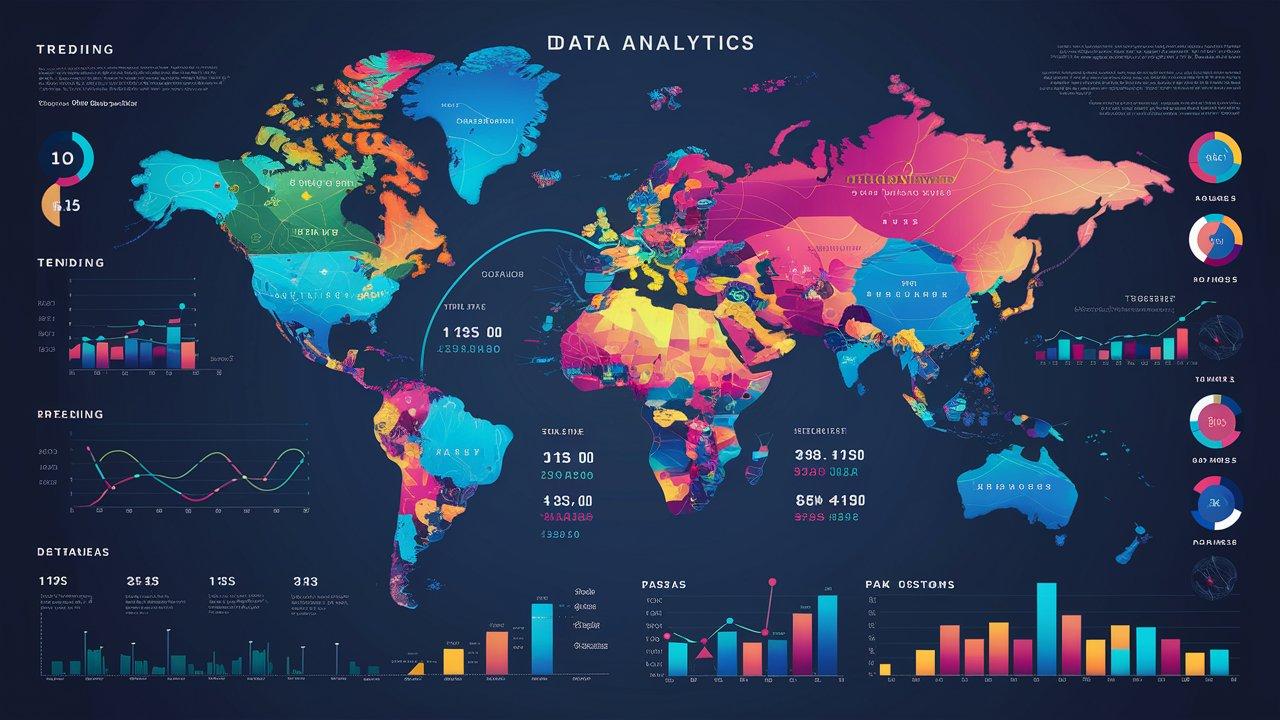A travel agency aimed to enhance its service offerings and competitive edge by leveraging data analytics through comprehensive data scraping of travel-related websites.
A travel agency looking to offer competitive pricing and comprehensive travel packages by aggregating data from various travel websites.
Objective
- To extract data on flights, hotels, car rentals, and travel packages from multiple travel websites to create a unified and competitive travel offering.
Steps Involved
- Requirement Analysis
- Identified target websites: Expedia, Booking.com, Skyscanner, Kayak.
- Defined data points: flight details (airlines, departure/arrival times, prices), hotel details (names, locations, prices, amenities), car rental details (company, car types, prices), and travel packages.
- Established scraping frequency: real-time or frequent updates to ensure up-to-date information.
- Legal and Ethical Considerations
- Ensured compliance with terms of service of target websites.
- Implemented respectful scraping practices to avoid overloading websites.
- Used proxy servers and IP rotation to avoid detection and blocking.
Data Delivery
Final Dataset: Delivered in CSV and MySQL format, with images and documents stored in AWS S3.
Data Points Included:
- Flights: Airline, Departure Time, Arrival Time, Price, Duration
- Hotels: Name, Location, Price, Amenities
- Car Rentals: Company, Car Type, Price
- Packages: Package Name, Details, Price
Results and Insights
- Comprehensive Database: The client received a detailed and up-to-date database of travel listings from multiple sources.
- Enhanced User Experience: The standardized data format facilitated seamless integration into the client's platform, providing users with a unified search experience.
Data analytics provides numerous benefits to the travel industry, helping businesses improve efficiency, enhance customer experiences, and gain a competitive edge. Here are some key business benefits:
1. Improved Customer Experience
- Personalization: Analyzing customer data allows travel companies to tailor recommendations and offers to individual preferences, increasing satisfaction and loyalty.
- Real-Time Feedback: Sentiment analysis of reviews and social media can help address issues promptly and improve service quality.
- Optimized Customer Journey: Tracking and analyzing customer interactions across different touchpoints helps in streamlining the booking process and post-purchase support.
2. Revenue Optimization
- Dynamic Pricing: Utilizing predictive analytics, travel businesses can adjust pricing based on demand, competition, and customer booking patterns, maximizing revenue.
- Ancillary Revenue: Identifying opportunities for upselling and cross-selling additional services such as car rentals, insurance, and activities can significantly boost profits.
- Yield Management: Data analytics helps in optimizing inventory management for hotels and flights, ensuring higher occupancy rates and better resource utilization.
3. Market Insights and Trends
- Demand Forecasting: Predictive analytics can forecast travel demand trends, helping companies plan inventory and marketing strategies effectively.
- Competitor Analysis: Monitoring competitor activities and pricing strategies can provide valuable insights for adjusting one's own offerings.
- Customer Segmentation: Identifying different customer segments based on behavior and preferences allows for targeted marketing campaigns.
4. Operational Efficiency
- Resource Allocation: Analytics can optimize staff scheduling, inventory management, and resource allocation, leading to cost savings.
- Route Optimization: For transportation companies, analyzing data can lead to more efficient route planning, reducing fuel consumption and travel time.
- Supply Chain Management: Data analytics helps streamline the supply chain, ensuring timely delivery of services and reducing operational costs.
5. Enhanced Marketing Strategies
- Targeted Marketing: Data analytics enables precise targeting of marketing campaigns based on customer behavior and preferences, improving ROI.
- Campaign Effectiveness: Measuring and analyzing the performance of marketing campaigns helps in refining strategies for better outcomes.
- Customer Acquisition and Retention: Insights into customer lifecycle and behavior can help design effective acquisition and retention strategies.
6. Risk Management
- Fraud Detection: Analytics can identify unusual patterns and detect fraudulent activities, protecting the business and customers.
- Crisis Management: Predictive analytics can foresee potential disruptions and enable proactive measures to mitigate risks.
- Regulatory Compliance: Ensuring compliance with local and international regulations through continuous monitoring and reporting.
7. Innovation and Product Development
- New Service Development: Identifying gaps and opportunities in the market through data analysis can lead to the creation of new services or products.
- Customer Feedback Integration: Analyzing feedback helps in continuously improving existing offerings and developing innovative solutions.
- Trend Analysis: Keeping up with industry trends and adapting offerings accordingly ensures relevance and competitiveness.
8. Customer Loyalty and Retention
- Loyalty Programs: Analyzing the effectiveness of loyalty programs and identifying areas for improvement helps in retaining customers.
- Churn Prediction: Predicting and understanding reasons for customer churn allows for proactive measures to retain valuable customers.
- Enhanced Customer Service: Providing data-driven insights to customer service teams improves their ability to resolve issues quickly and effectively.
9. Sustainability and Environmental Impact
- Sustainable Practices: Analyzing data related to energy consumption, waste, and other environmental factors helps in implementing sustainable practices.
- Carbon Footprint Reduction: Optimizing travel routes and operations based on data can lead to reduced carbon emissions and a smaller environmental footprint.
- Compliance and Reporting: Ensuring compliance with environmental regulations and providing transparent reporting through data analytics.






